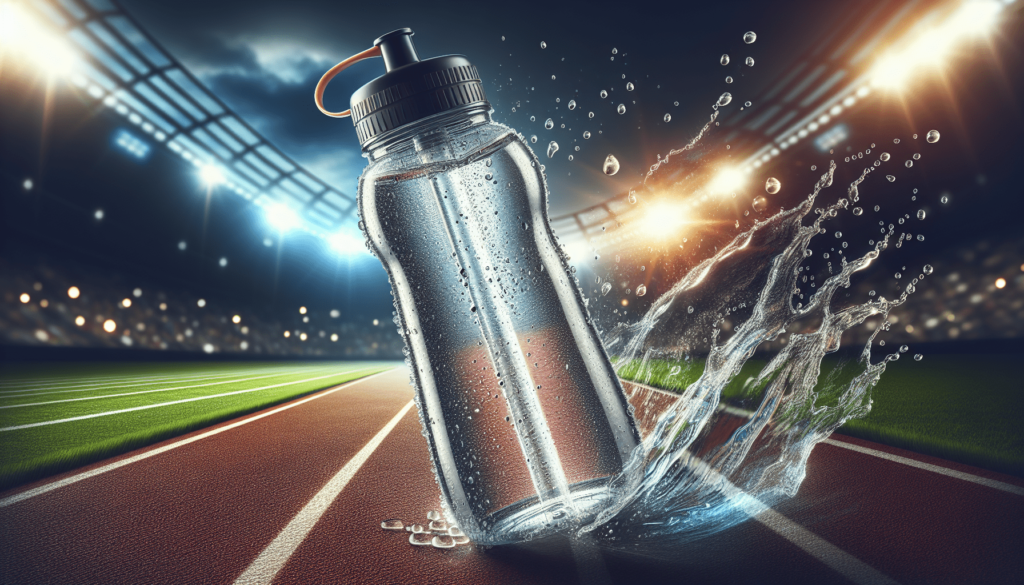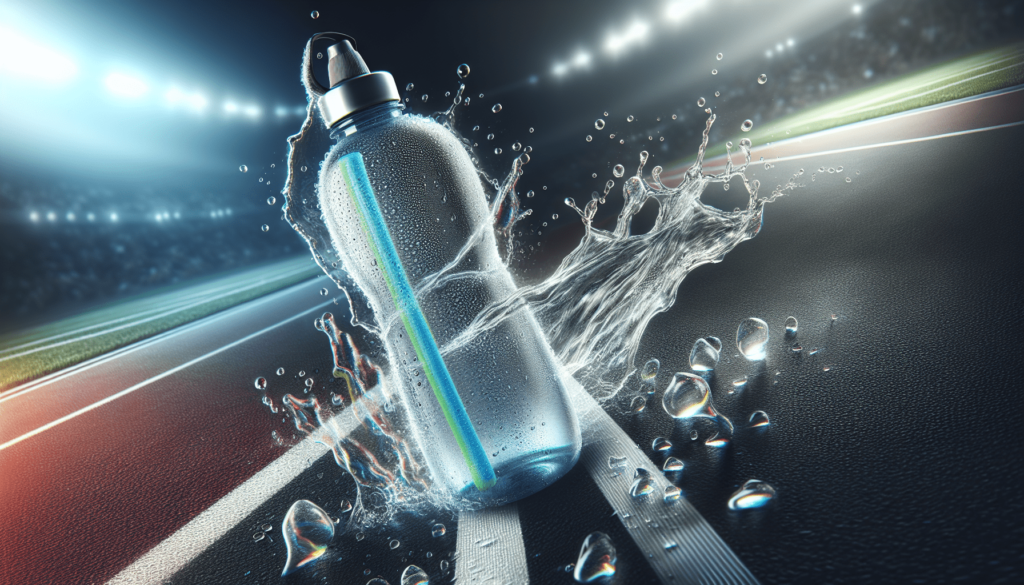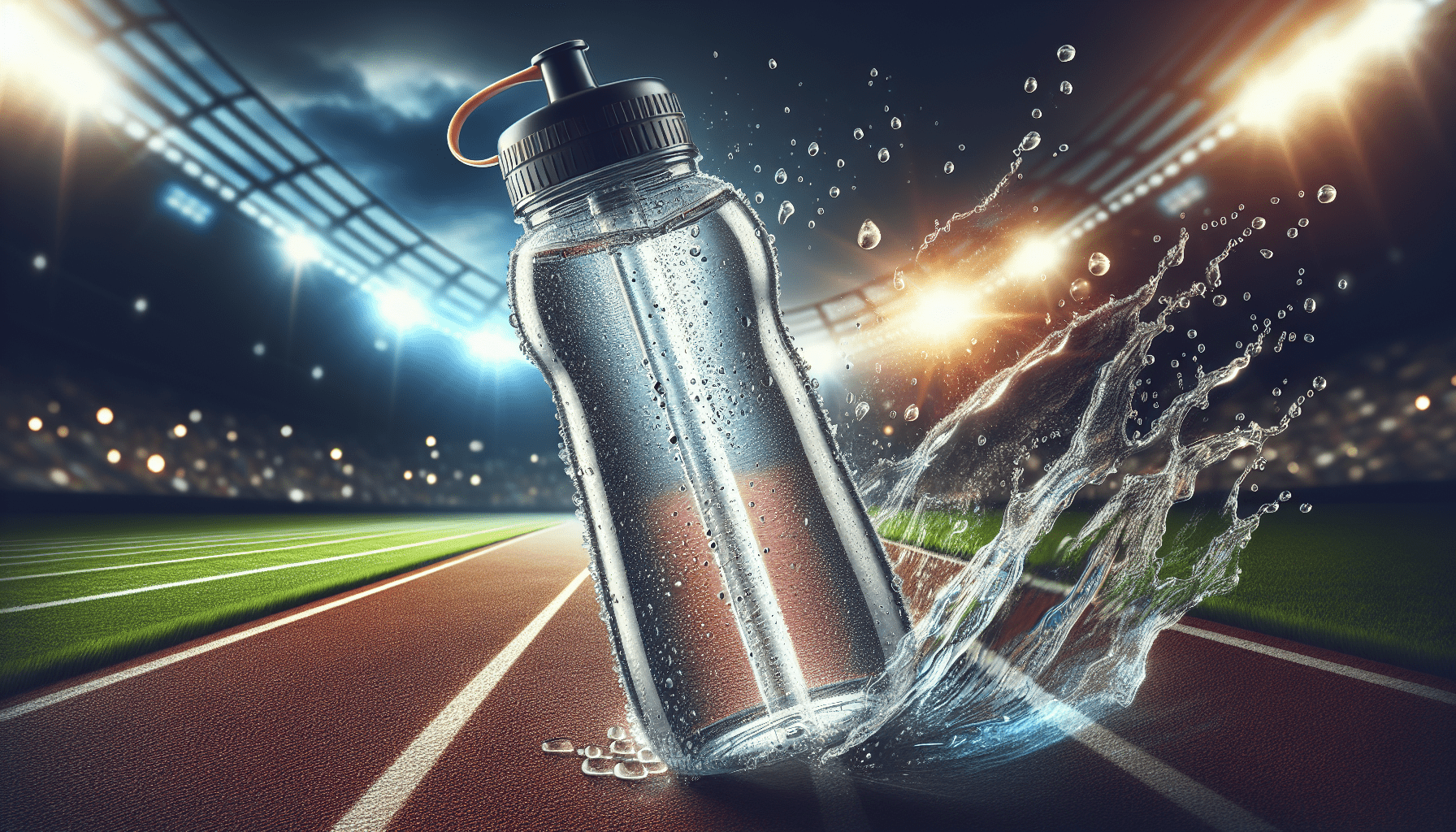Have you ever wondered why your performance during a sports match resembles the flapping of a fish stranded on a dock? You’re gasping for air, willing yourself to move faster, and seriously considering if your sneakers are secretly made of lead. The culprit, my friend, might just be a lack of proper hydration.
Hydration isn’t just a fancy term you hear fitness enthusiasts and nutritionists throw around to make their job sound more important. It’s a fundamental element of performance that can make or break your athletic endeavors. In this riveting tale of water bottles and electrolyte blends, we’ll uncover the unsung hero of sports performance: hydration.

Why Hydration Is Crucial for Athletic Performance
Before you hear your coach yelling at you to chug a bottle of water, let’s understand why hydration matters. Picture your body as a well-oiled machine. Water is the oil, and without it, your engine will sputter and stall. When you sweat during physical activity, you’re shedding more than just your dignity and a few pounds of water weight.
Your body’s ability to regulate temperature, transport nutrients, and maintain high energy levels hinges on one key ingredient: water. If you’re not adequately hydrated, your muscles become slower to respond, your endurance tanks, and you might just end up kissing that medal goodbye.
The Science Behind Hydration
Water and Body Composition
Did you know that about 60% of your body is water? Imagine being a human-shaped water balloon walking around and trying to function. If that balloon gets a leak, bad things can happen. The brain, blood, and muscles all have high water content. So, if you don’t hydrate, these parts of the body might feel like a sun-dried tomato, and nobody wants that.
The Role of Electrolytes
To make matters even more complex, your hydration status isn’t just about water. Enter electrolytes, the little ions that keep your cells operating smoothly. Sodium, potassium, magnesium, and calcium are among the key players. They help transmit nerve impulses, contract muscles, and balance your pH levels. Think of electrolytes as the supporting cast in a blockbuster movie. Without them, the star (water) wouldn’t shine as bright.
Hormonal Regulation of Hydration
Imagine your body has its very own hydration management service led by the dynamic duo, Antidiuretic Hormone (ADH) and Aldosterone. ADH is like that friend who constantly reminds you to drink water and prevents your kidneys from wafting out too much of it. Aldosterone, meanwhile, is the champion of electrolyte balancing, telling your kidneys to hold onto sodium and water. Without these hormones, our hydration would be as organized as a sock drawer after a tornado.
The Impact of Dehydration
Dehydration can kick off a chain reaction that turns even the fittest athlete into a huffing, puffing puddle of failure. Critical functions like cardiovascular performance, thermoregulation, and muscle efficiency take a hit. When these systems aren’t working at full capacity, your performance drops faster than the Wi-Fi when you need it most.
How to Hydrate Effectively
So now you know why hydration is important, but how do you achieve the Zen-like state of being perfectly hydrated?
Pre-Exercise Hydration
It’s like preheating the oven before you bake a cake. Aiming for about 500 to 600 milliliters (17-20 ounces) of water 2-3 hours before exercise gets you off to a good start. It’s your body’s hydration baseline.
| Time Before Exercise | Amount of Water |
|---|---|
| 2-3 hours | 500-600 ml (17-20 oz) |
| 20-30 minutes | 200-300 ml (7-10 oz) |
Hydration During Exercise
When you’re in the thick of it, sipping water is essential. Aim for 200-300 milliliters (7-10 ounces) every 20 minutes during exercise. If your workout extends beyond an hour, you should also think about incorporating an electrolyte drink to replenish the minerals you’re sweating out like a popsicle on a hot day.
| Duration of Exercise | Type of Hydration | Amount |
|---|---|---|
| Under 1 hour | Water | 200-300 ml (7-10 oz) every 20 min |
| Over 1 hour | Water & Electrolyte Drink | 200-300 ml (7-10 oz) every 20 min |
Post-Exercise Hydration
You did it! You finished the workout without collapsing into a heap! But don’t celebrate by diving headfirst into a trough of nachos just yet (although, tempting). Rehydrate first. Aim for 500-700 milliliters (17-24 ounces) within 30 minutes to replace fluids lost and assist in recovery.
| Time After Exercise | Amount of Water |
|---|---|
| Within 30 minutes | 500-700 ml (17-24 oz) |
Monitoring Hydration Status
Yes, we’re suggesting you take a good, investigative look at your pee. Pale yellow means you’re hydrated; anything darker suggests you might be steering toward dehydration-ville. It’s a simple, yet effective, gauge of your hydration status.
The Hazards of Overhydration
Believe it or not, you can have too much of a good thing. Overhydration dilutes your electrolyte levels, causing a potentially life-threatening condition called hyponatremia. Symptoms can range from confusion and seizures to, in extreme cases, death. So guzzling down gallons of water ‘just to be safe’ might not be the brightest idea.

Special Considerations for Different Athletes
Endurance Athletes
If you’re one of those folks who think running ultra-marathons is a sensible way to spend a weekend, your hydration needs are on a different level. Extended activity demands a meticulous balance of both water and electrolytes. Specialized hydration packs or belt systems can be your best friend, helping you sip without breaking your stride.
Team Sports
For team sport athletes participating in games that span over an hour with intermittent rest (like soccer or basketball), maintaining hydration can be tricky. Regular hydration breaks and electrolyte sports drinks may help keep performance optimized.
Strength Trainers
If you’re more about lifting metal than running miles, you still need to pay attention to hydration. Dehydration can severely impact muscle strength and endurance. Somehow, trying to bench press while your muscles are cramping is not a recipe for success.
Practical Tips to Stay Hydrated
Here are some practical tips that might just save you from becoming a parched catastrophe:
- Hydration Schedule: Set reminders on your phone to sip water regularly.
- Flavor it Up: If plain water feels like a chore, add a splash of lemon or cucumber.
- Hydrating Foods: Snacking on fruits and veggies with high water content (like watermelon or cucumber) offers an extra hydration boost.
- Tech Tools: Invest in smart water bottles or hydration apps that help you track your intake.
Myths and Misconceptions
Myth: Sports Drinks Are Always Necessary
Some people think they need a neon-colored sports drink every time they break a sweat, but those are most beneficial for extended or high-intensity activities. For a 20-minute stroll? Water is perfectly fine.
Myth: You Only Need to Hydrate When Thirsty
By the time you’re thirsty, it’s likely too late. Thirst is a delayed indicator, and you might have already entered the preliminary stages of dehydration.
Conclusion
Now, armed with all this hydration wisdom, you’re ready to tackle your next athletic feat without turning into a human jerky strip. Hydrate effectively, balance your electrolytes, and keep one wary eye on your pee color, and you just might find your performance improving significantly. So go forth, trusty water bottle in hand, and conquer your sporting challenges like the well-hydrated champion you are!
